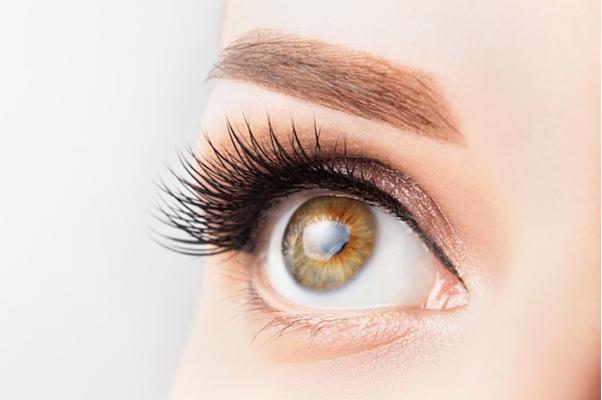
The eyes are one of the most important organs in the body, and yet they are often taken for granted until something goes wrong. That’s why it’s important to take care of your eyes by protecting them from the sun and getting regular eye exams. According to the American Optometric Association, some other ways to protect your eyes include:
• Wearing sunglasses that block 99% of UVA and UVB radiation.
• Avoiding smoking, which increases your risk of developing age-related diseases.
We only use 10% of our brain, good eye care can help with this. It is important that we ensure healthy eyes because it not only affects our vision but also our memory function.
This article is about the benefits of good eye health, including how it impacts memory and your overall well-being. As we all know, people have a lot of misconceptions about eyesight and what to do if you have trouble seeing clearly.

Why is eye health important?
1. Good vision can improve concentration. The ability to focus on tasks and see clearly can help you stay on task and be productive. It can also help you read, drive, and do the other things you do when you need to be focused on what you’re doing.
2. It can help you stay healthy. Poor eyesight may lead to missed medical appointments, missed work days, and even higher risk for diseases such as cancer.
3. In addition to staying healthy, having good vision keeps your mind sharp by allowing you to see better than someone who has poor eyesight. This allows you to have a more active lifestyle and stay mentally active.
4. Good vision can make a positive impact on your social life. Social activities are often associated with fun, laughter, and enjoying time with friends and family members. However, if you don’t have good vision, it can be difficult to participate in these activities because you may not be able to see what is going on or what you are doing.
5. It can also help protect the environment by reducing energy consumption and pollutants in factories and gas stations.
The Importance of Eye Care
A healthy eye is essential for optimal mental performance. In fact, researchers have found that people who have healthy eyes tend to have better memories than those who don’t. One study found that people with good vision recall information more accurately than those who have poor vision. And another study showed that individuals with better vision were also more likely to achieve higher academic grades.
So what accounts for this link between good eye health and better memory? Researchers believe that good vision allows you to focus more easily on what you’re trying to remember. And because good memory requires a lot of focused attention, having good vision helps you improve your memory skills overall.
How Eye Health Can Impact Memory
Memory is a complex cognitive process that allows an individual to recall past experiences. Good eye health can help protect the brain from age-related damage, which can impact memory ability. Here are some ways good eye health can affect memory:
1. Better vision helps people remember what they see. Good vision enables people to complete daily tasks more effectively and increase their productivity. Furthermore, it enhances the overall quality of life by reducing stress levels and promoting relaxation.
2. Healthy eyesight contributes to cognitive function in adults. Adults who have healthy eyesight perform better on cognitive tests, such as the California Verbal Learning Test (CVLT) than those who have poor vision. This is likely because good vision allows people to pay attention more fully to their surroundings, which leads to better learning outcomes.
3. Poor vision can lead to decreased mental agility and concentration. In addition, it can hinder people’s ability to learn new information and retain information learned earlier in life. This is because poor vision may cause difficulties focusing on objects and reversing mental images, both of which are essential for memory formation.
Glaucoma & Cataracts
These are some common eye diseases that can affect your memory and daily life.
Glaucoma
Glaucoma is a progressive eye disease that results in gradual loss of vision. The condition is caused by an increase in pressure inside the eye. This increased pressure can damage the optic nerve, which transmits images from the eye to the brain. Glaucoma typically affects older adults and can be fatal if not treated promptly.
Cataracts
Cataracts are opacities in the lens of the eye that can cause reduced vision and even blindness. The most common type of cataract is age-related – as we age, our lens becomes harder and less elastic, leading to cloudy vision and eventual cataract formation. Cataracts can also be caused by exposure to sunlight or other UV light, smoking, drinking alcohol, using certain medications (such as steroids), working long hours outdoors in the summer, or being exposed to certain chemicals (like smoke, radon gas, and lead). In any case, cataract formation can be prevented by wearing eye protection and using effective sunscreens.
There are a few things you can do to take care of your eyes and prevent vision problems. Here are some tips:
– Get your eyes checked regularly by an eye doctor.
– Wear sunglasses or contact lenses with UV protection when you’re outdoors.
– Quit smoking.
– Eat a healthy diet that includes leafy green vegetables, fish, and nuts. – Take breaks if you’re staring at a screen for long periods of time.



